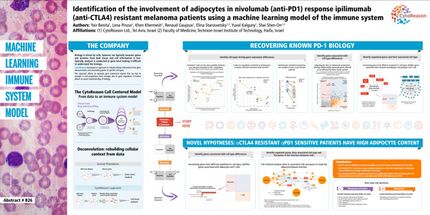SEQUENOM Announces Gene Expression Agreement With the University of Tuebingen
MassARRAY(TM) Compact System Reference Site Established
Advertisement
SEQUENOM, Inc. announced an agreement with the Institute of Medical genetics and the Microarray Facility at the University of Tuebingen in Germany for SEQUENOM's MassARRAY Quantitative gene expression (QGE) application. The Institute is one of the largest users of Expression profiling arrays in Europe and will use the application on the MassARRAY Compact system to validate pre-existing microarray data and to explore gene expression levels in various neurodegenerative diseases and cancers. Researchers at the Institute hope to use the research to develop diagnostic approaches for conditions such as Parkinson disease, Huntington disease and for different cancers.
"SEQUENOM's MassARRAY system offers a level of specificity, accuracy and particularly quantitative reproducibility that makes it ideally suited to clinically validate microarray-generated research data," said Olaf Riess, M.D., Director of the Institute. "Utilizing MassARRAY technology, we have the ability to achieve a high level of data quality with extremely low standard deviations across a wide range of concentrations of genetic target material in multiple clinical and transgenic samples."
The Institute will also serve as a MassARRAY Compact reference site. The Compact is a flexible benchtop system that supports all platform applications, including MassARRAY QGE, SNP Genotyping, SNP Discovery, Allele Frequency Analysis and Long-Range Haplotyping.
"We are pleased that the Institute has recognized the MassARRAY system's ability to deliver outstanding data quality and reproducibility in gene expression and has chosen our technology for its clinical validation needs," said Toni Schuh, Ph.D., SEQUENOM's President and Chief Executive Officer. "We believe that the system's performance characteristics will redefine quality benchmarks in the growing market of quantitative genetic analysis, and we see this as an area of strong future growth for SEQUENOM."






































